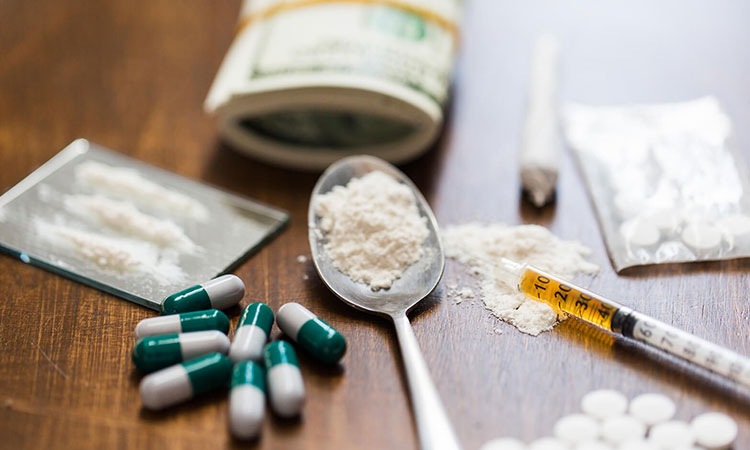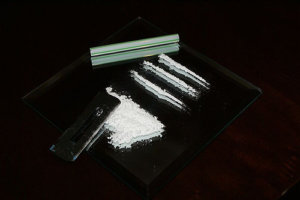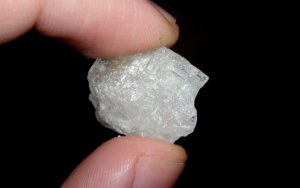
The ability to identify the signs of drug use can help determine whether a loved one may be using drugs or abusing alcohol and as a result, risking adverse consequences to their health, career, school, and family life.
General Signs of Drug Use
If an individual is abusing any substance, here are some indicators to look for:
- For students – difficulties at school, indifference to school-related activities, and a reduction in academic performance
- For workers – chronic lateness or absenteeism, appearing tired and disinterest in completing work duties, and poor work performance/reviews
- Adverse changes in physical appearance, such as dirty/disorderly clothing and exhibiting a lack of interest in grooming or hygiene
- Isolating behavior, such as increased demand for privacy
- Drastic changes in relationships including conflicts and estrangement
- A notable lack of energy when engaging in daily activities
- Spending more money than usual, requesting to borrow money, or issues with financial management, such as the neglect of bills
- Changes in appetite, such as a reduction in appetite and corresponding weight loss
- Bloodshot eyes, poor skin color, and appearing tired or run down
- Acting in a defensive manner when questioned about drug use
Identifying Drug Use in Teens
While general moodiness is often merely a part of adolescence, drug use can be identified by more drastic changes in mood or behaviors, including acting withdrawn and extremely tired, depressed, or hostile.
Also, parents should take note if their child beings associating with different peer groups, as changes in associations with friends may be correlated with substance use. An adolescent using drugs may also be more inclined to skip classes and exhibit poor academic performance. They may also change their eating or sleeping habits.
Signs of Drug Use: Which Drug Are They Using?
When used/abused, different drugs can present in a variety of ways. Unless you are aware of the signs of drug abuse and how a specific drug affects a person’s behavior, mental, physical, and emotional states, it can be challenging to identify exactly what type of drug he or she is using.
Marijuana (Pot, Weed, Grass, Cannabis, etc.)
Marijuana is one of the most commonly available drugs and is used for its effects that promote relaxation and well-being. Its potential for chemical addiction has been disputed for decades and is not known to be a factor in fatal overdoses, but regular abuse can result in chronic absenteeism from work or school, general lethargy, paranoia, anxiety, depression, and memory loss.
Some research has suggested that heavy marijuana use can result in dependence and withdrawal symptoms. Fortunately, most effects of marijuana subside rapidly after cessation of use.
Physical effects may include:
- Red eyes/dilated pupils
- Dry mouth
- Dizziness
- Increased appetite
- Slowed reaction time
- Increased heart rate
- Lowered blood pressure
- Increase bleeding
- Altered blood sugar
- Chronic cough
LSD (Acid)
LSD is a commonly used hallucinogen that induces an altered state of consciousness, euphoria, distorted sense of time and space, and hallucinations. The way LSD affects a user varies depending on how much a person takes and how they’ve long they’ve been taking it.
Using LSD increases serotonin, a chemical in the brain responsible for the regulation and management of learning, memory, arousal, mood, and sleep cycles. When LSD enters the body, it increases serotonin levels – the greatest effects often include visual changes and distortions, such as the blending of colors, enhanced color schemes, and combined sensory experiences.
When using LSD, people may also exhibit poor judgment and experience anxiety/panic, delusions, paranoia, extreme emotions, impaired memory, loss of motivation, and a lack of concentration.
Physical effects may include:
- Increased heart rate, blood pressure, and body temperature
- Sweating
- Nausea and vomiting
- Dilated pupils
- Restlessness
- Impaired coordination
- Appetite loss
Cocaine (Coke, Crack)

Cocaine is a stimulant drug that affects dopamine, a brain chemical that induces feelings of euphoria and reward. Cocaine is fairly short-acting, and use results in a rapid, energetic high that must be sustained with frequent, repeated use to maintain the feeling. The desired effects often cause the user (at least initially) to feel particularly confident, talkative, and euphoric.
Regular users also exhibit decreased appetite and irregular sleep patterns. Emotional side effects can include agitation, aggression, and paranoia.
Physical effects may include the following:
- Noticeable weight loss
- Dilated pupils
- Runny, sniffly, or bloody nose
- Needle/track marks on the body
- Increased heart rate
- Nervousness/jitteriness
Heroin
Heroin is a semi-synthetic opioid derived from morphine. Use results in a rush of euphoria and a warm flushing sensation followed by a heaviness in the extremities and a reduction in central nervous system activity, sedation, and possibly a loss of consciousness. Heroin can be smoked or taken orally, and it commonly injected, which result in a faster, more intense high.
Depending on the amount used, a person high on heroin may be unable to feel pain and they will undoubtedly feel very relaxed. Also, their ability to engage in decision-making and self-control may be impaired.
Physical effects make also include:
- Dry mouth
- Flushed appearance to the skin
- Constricted pupils
- Slowed breathing
- Itchiness
- Nausea and vomiting
- Constipation
- Lethargy
- Unconsciousness
Methamphetamine (Meth, Crystal)

Meth is a stimulant drug with effects similar to cocaine that causes an initial, intense euphoric rush following by hyperactivity. It is a much longer-acting drug than cocaine, however, and use can result in hours of increased energy, talkativeness, and activity.
Chronic meth users often exhibit many adverse mental and emotional effects including anxiety, paranoia, delusions, and hallucinations. Skin-picking is common due to formication, or the tactile sensation of bugs crawling on the skin.
Physical effects may also include:
- Increased heart rate and blood pressure
- Dilated pupils
- Rapid eye movement
- Reduced appetite
- Insomnia
- Sudden outbursts or extreme mood swings
- Twitching
- Psychosis
Signs of Alcohol Addiction (Alcohol Abuse, Alcoholism)
Alcohol use disorder often manifests a wide variety of signs and symptoms. Moreover, so-called “high-functioning” alcoholics may be able to conceal or minimize signs for months or years – however, over time, it often becomes increasingly difficult to hide the problem.
Alcohol abuse can result in blackouts and memory loss following drinking episodes. Severe alcohol use disorder may cause a person’s hands to tremble and chronic users may also present with an unwell, jittery and anxious appearance that lacks general health care or personal hygiene.
Alcoholics are often secretive, isolated, defensive when questioned about their drinking, and easily depressed and agitated. It is not uncommon to see alcohol abusers arguing with family and friends over issues related to drinking or intoxication. Altercations are also more likely to become aggressive or violent.
Common signs of alcohol addiction include:
- Lack of control over the amount one drinks and/or for how long
- Preferring to drink alone, in secret, or at inappropriate times, such as the morning (i.e., hair of the dog)
- Continuing to drink despite adverse interpersonal, physical, and psychological consequences
- Drinking to cope with problems, relax, sleep, or improve mood
- Spending considerable time obtaining, using, or recovering from alcohol use
- Neglecting responsibilities and exhibiting a lack of interest in activities once deemed enjoyable
Treatment for Drug and Alcohol Addiction
Following detox, treatment for drug or alcohol addiction is most effectively treated using a comprehensive, evidence-based approach that includes behavioral therapy, counseling, and group support. Our center offers these services in both inpatient and outpatient formats, as well as complementary, holistic practices such as yoga, meditation, and art therapy.
Also, we employ medical and mental health professionals with expertise in addiction who provide clients with the tools they need to recover and be confident in their new-found sobriety.
You don’t have to do this alone – you CAN regain your life, happiness, and wellness. We can help!
Our programs are structured with various components of evidence-based treatment practices and holistic approaches to treatment that provide our patients with the knowledge and tools they need to be successful in their recovery.
If you or your loved one is suffering from substance abuse, please seek help as soon as possible.
